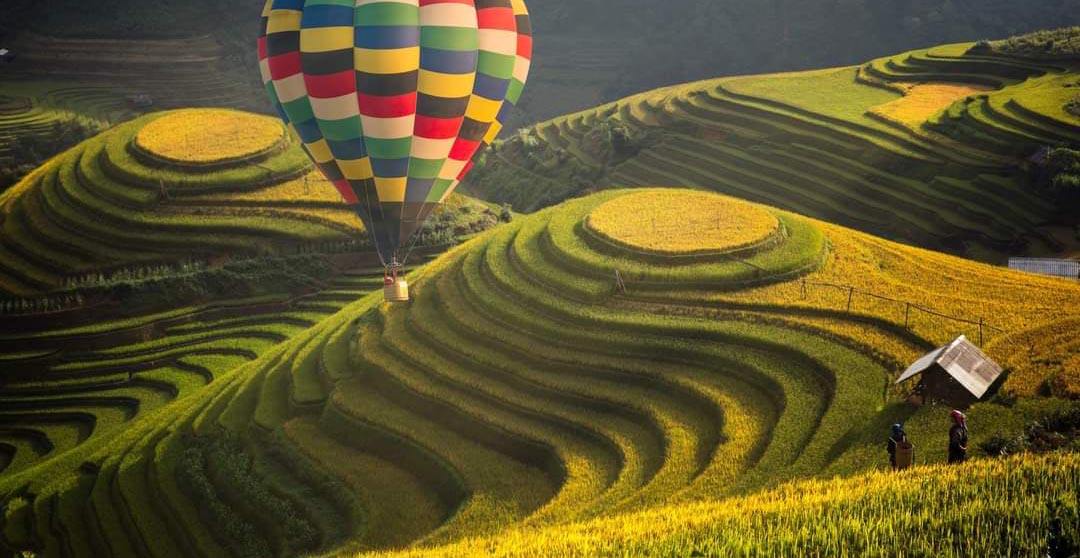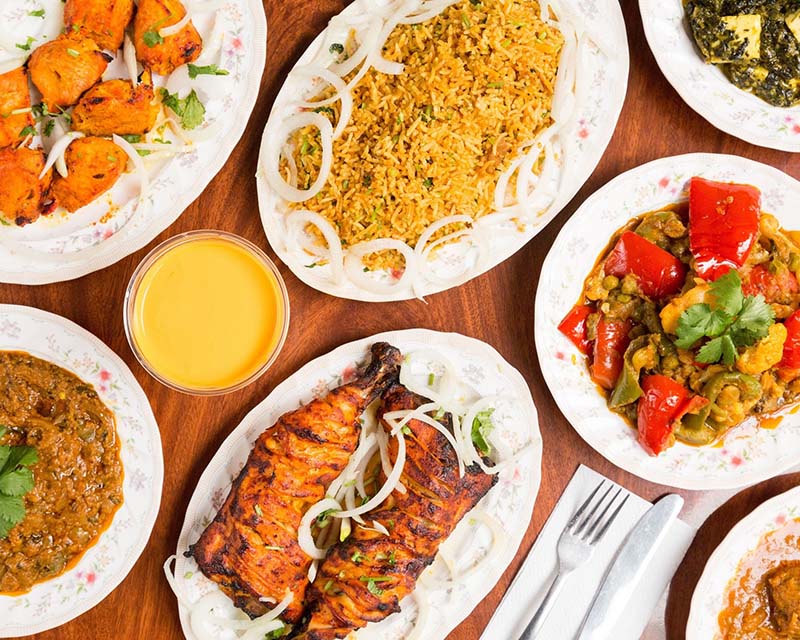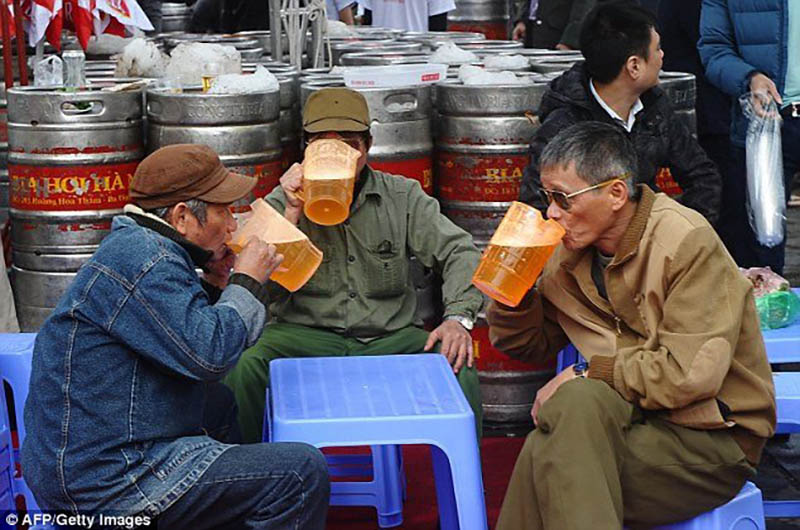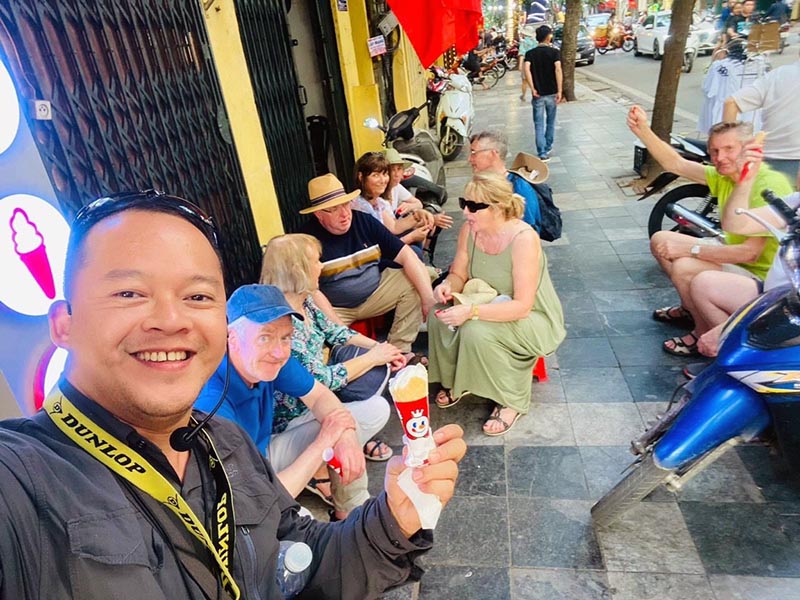Common Vietnam foods to avoid
This is a destination that offers a variety of famous dishes and showcases bold culture. From street food to restaurant-cooked meals, everything is appreciated. However, it is important to pay attention to the foods that can affect your health and avoid them. Considering the question "Is food safe in Vietnam?", it is crucial to be mindful of food safety practices to ensure a safe culinary experience. Here are some tips to keep in mind while discovering and experiencing food safety in Vietnam.
Street food with questionable hygiene
Although street food is an indispensable part of exploring Vietnam's culinary culture, not all vendors adhere to hygiene regulations. Therefore, before purchasing street food, it is important to thoroughly research the eateries and vendors to ensure food safety. Prioritize selecting vendors who cook with fresh ingredients and maintain proper cleanliness. It is also crucial to be aware of what not to eat in Vietnam.
Furthermore, if you wish to try street food in an unfamiliar area with various food options, seek recommendations from residents for reliable and renowned eateries. They can guide you on what to eat and what to avoid. If possible, choose restaurants that have been inspected and certified by authorities to ensure the safety of your health. By exercising caution and staying informed, you can relish the diverse and delectable street food while minimizing potential risks.
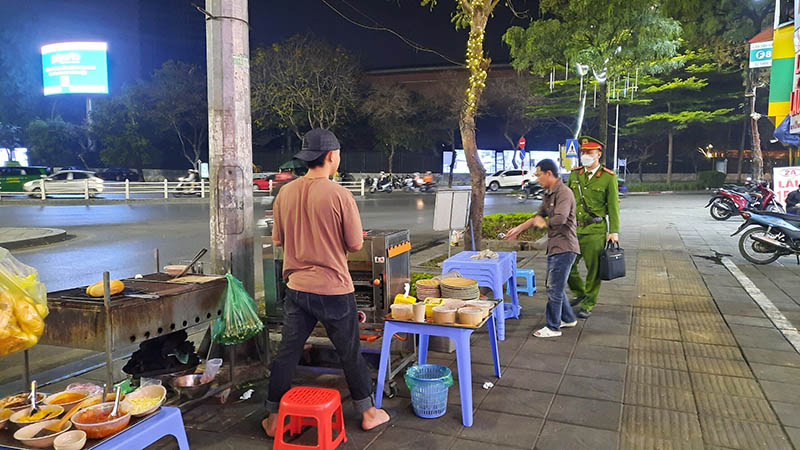
Street food in Vietnam
Undercooked or raw meat and seafood
In Vietnam, the issue of undercooked or improperly cooked food is highly important. Meat and seafood that are not cooked thoroughly can harbor dangerous bacteria and viruses. To ensure your health during your vacation, it is advised to avoid eating raw or undercooked food sold on the street or at low-quality establishments. This precaution will help you minimize the risk of foodborne infections and enjoy a safe and enjoyable trip.
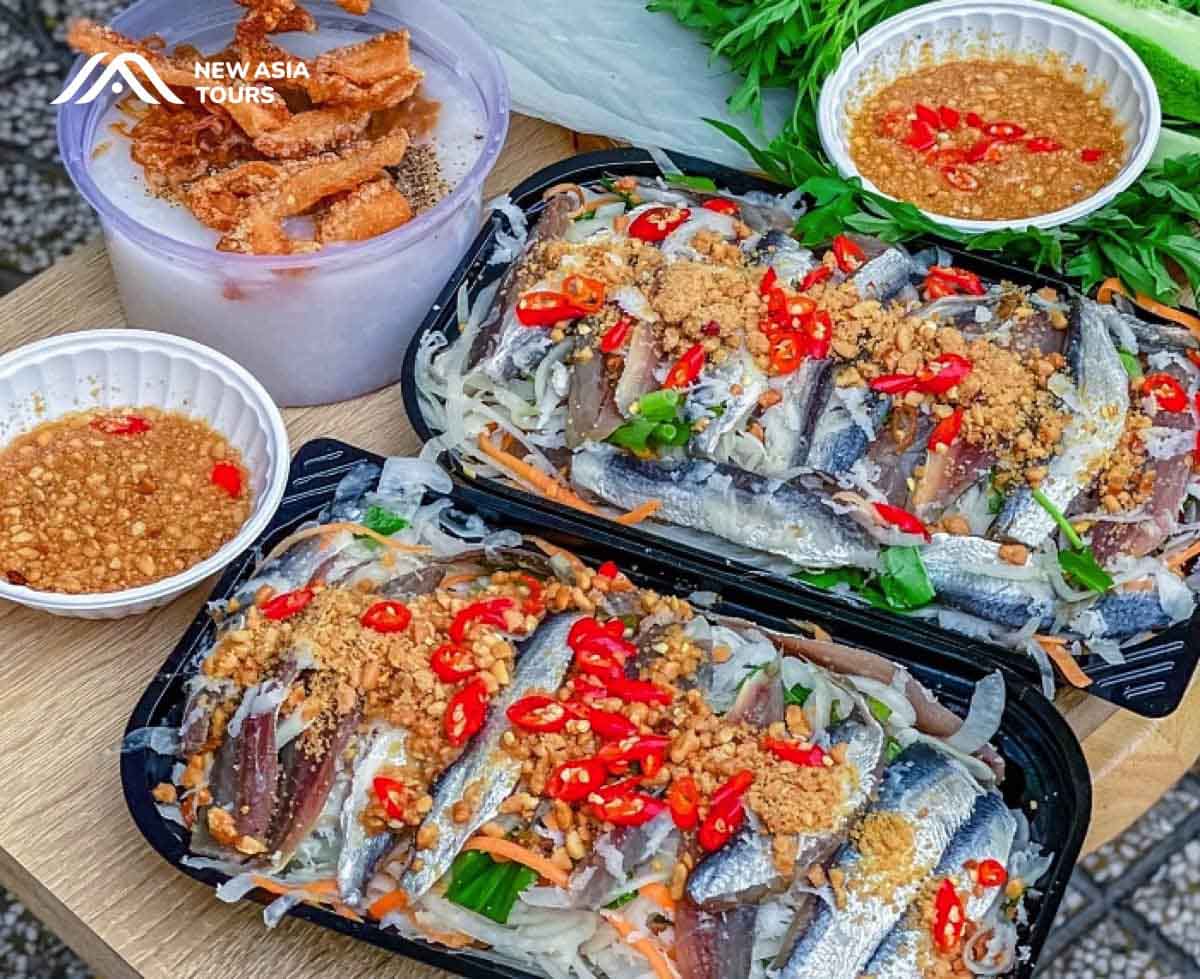
Restrictions on eating raw fish
Foods made with recycled oil
In some cases, a small number of food suppliers in Vietnam use illegally recycled oil in the cooking process, which can pose health risks due to the presence of harmful chemicals. To avoid these problems, look for food vendors or restaurants with reliable suppliers who use fresh oils in their preparation. This will ensure that you are consuming safe and healthy food. Besides, being aware of what not to eat in Vietnam is crucial. If you're unsure about the origin or safety of a particular food, it's better to learn more or avoid consuming it altogether.
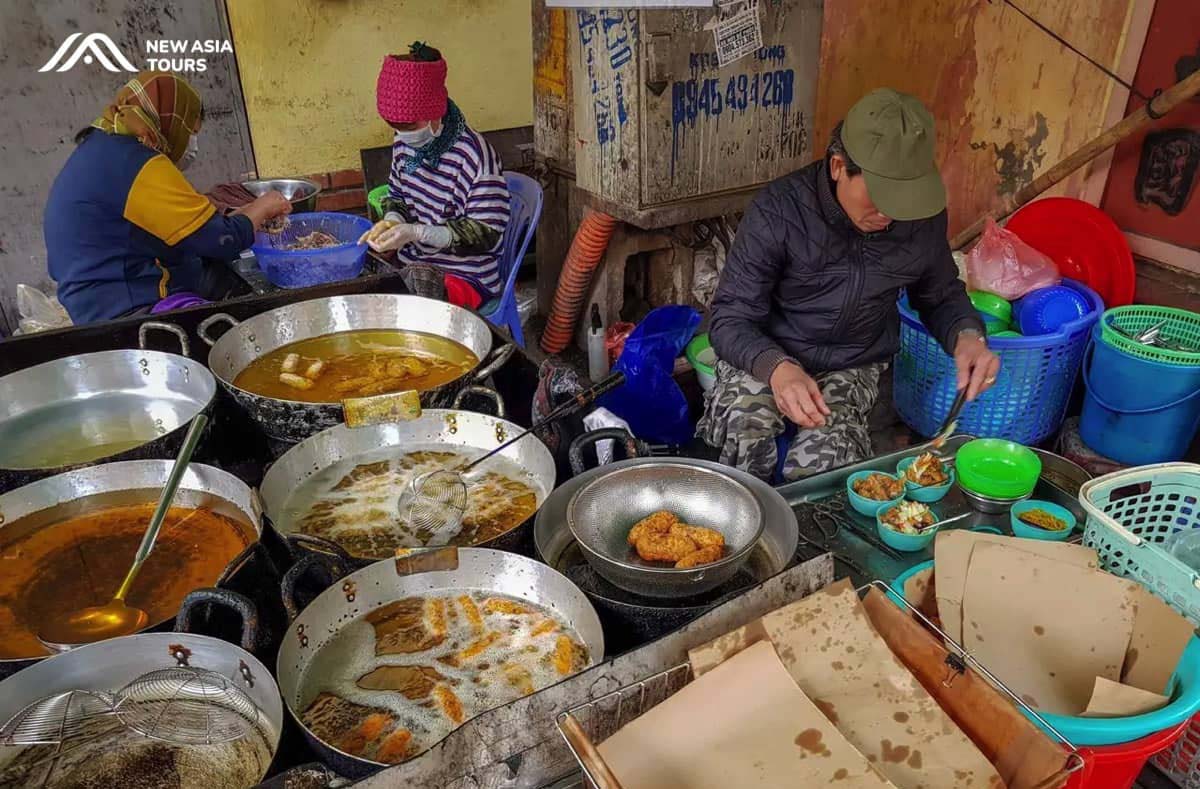
Foods made with recycled oil
Unpasteurized milk and dairy products
When traveling to Vietnam, it is advisable to avoid consuming unpasteurized dairy products to protect your health. These products may contain harmful bacteria that can cause food poisoning and harm your well-being. Instead, opt for properly pasteurized products.
You can find pasteurized milk and dairy products at supermarkets and grocery stores. If you're unsure whether a dairy product has been pasteurized, it's best to ask the supplier to ensure its safety for consumption.
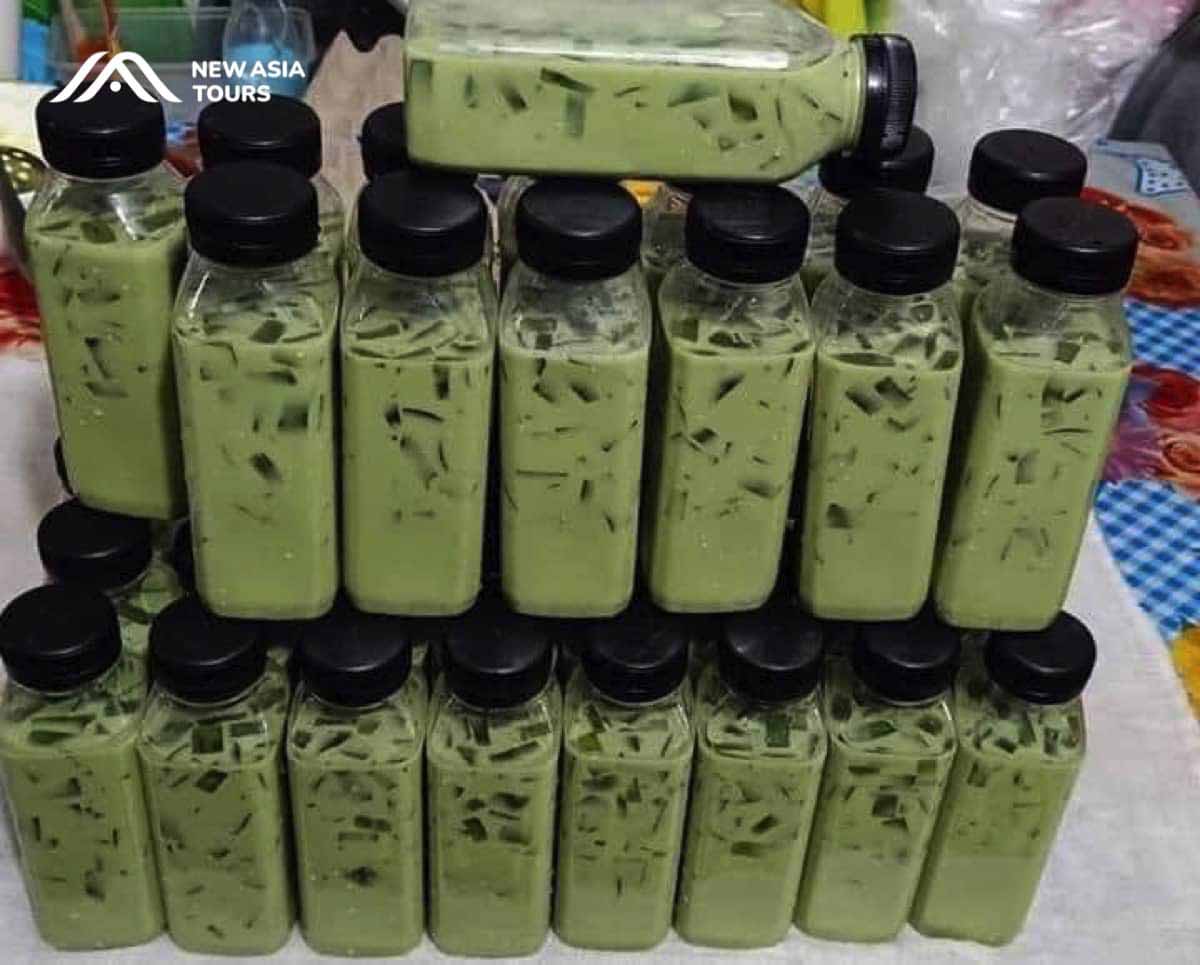
Unpasteurized milk
Fruit and vegetables that have not been properly washed or peeled
Fruits and vegetables are very popular in Vietnamese cuisine as they are essential ingredients that enhance the deliciousness of dishes. However, when fruits and vegetables are not peeled or washed, they can easily harbor harmful bacteria, particularly in the case of street food sold predominantly on sidewalks. Therefore, exercising caution, choosing reputable sellers, and prioritizing safer and more hygienic options are crucial. Additionally, paying attention to what not to eat in Vietnam is equally vital, considering certain foods that may pose a higher risk of foodborne illnesses.
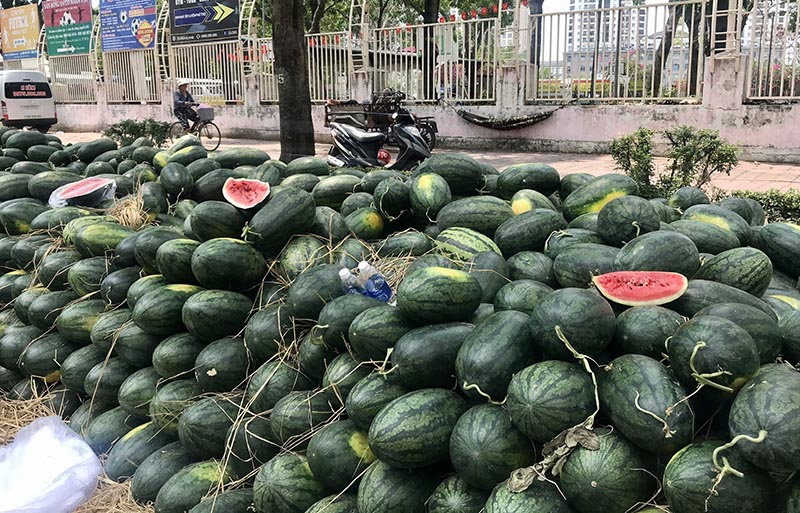
Fruits sold on the street should be thoroughly washed before consuming
Special dietary restrictions to consider
Before you start enjoying Vietnamese food, there are dietary restrictions that you need to consider first to ensure your health and suit your nutritional needs. With the discipline of restricting your diet before you start enjoying foods, it will be easier for you to choose foods that are more suitable and safe for you. To make your food choices easier, here are some helpful tips to help you.
Vegetarian or vegan options
Vietnamese cuisine is rich and varied, offering a wide range of options, including many vegetarian or vegan dishes suitable for individuals with dietary restrictions. However, it is important to communicate your dietary restrictions clearly when ordering food. You can request dishes that do not contain any meat or animal products. It's also essential to know what not to eat in Vietnam, considering certain foods that may not align with your dietary preferences or restrictions, such as dishes that contain ingredients like shrimp paste or fish sauce for individuals following a vegetarian or vegan diet.
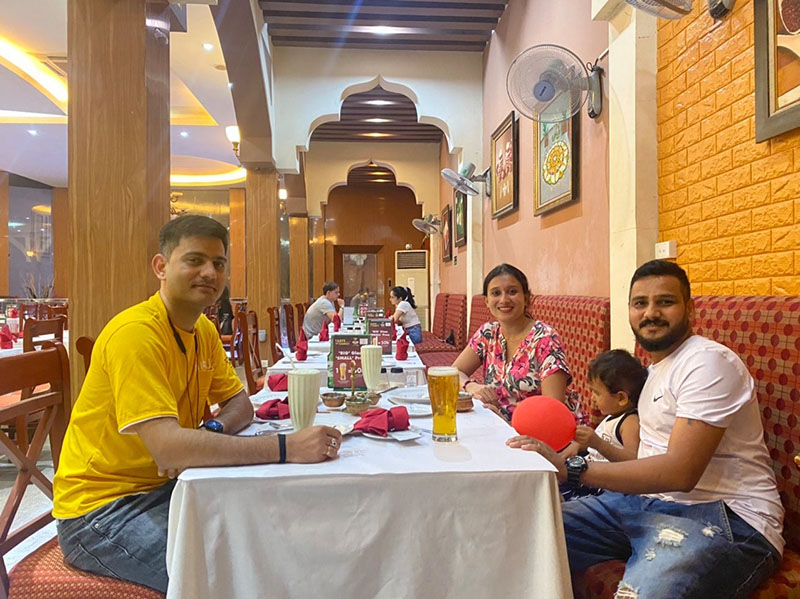
Namaste Indian Vegetarian Restaurant
Gluten-free options
Gluten-free dishes are becoming more popular in Vietnam, especially among people with dietary restrictions. To find the right dishes, you can choose rice noodles instead of wheat noodles, and avoid dishes with soy sauce, which often contains gluten. There are also many other choices, including dishes that use gluten-free flour, like cornstarch or potato flour.
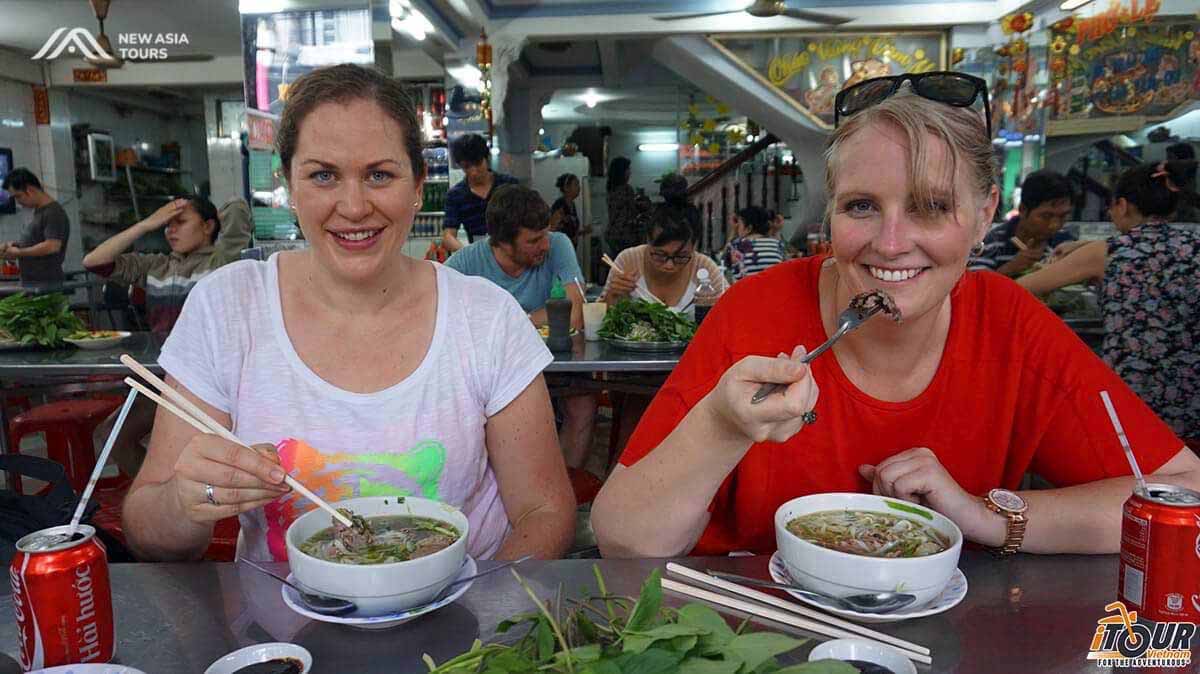
Gluten-free dishes
Halal options
Finding halal food can be challenging in Vietnam as it is not very popular, but there are still places that offer these types of foods. To find halal food, you can search for restaurants that are Halal-certified, such as Indian or Middle Eastern restaurants in Vietnam. Alternatively, you can ask suppliers to confirm that their products do not contain pork or alcohol.
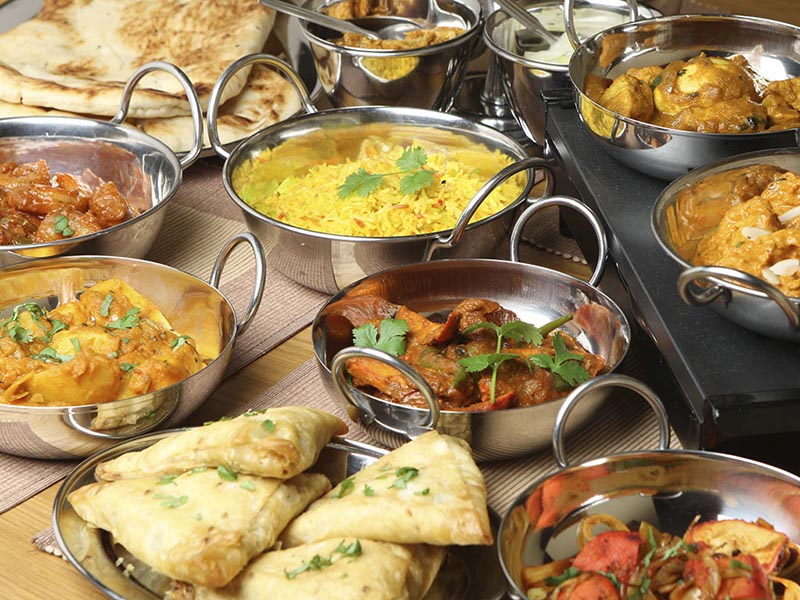
Halal foods in Da Nang City
Tips for avoiding food-related illnesses
Many people want to avoid getting sick from food when they enjoy the delicious dishes in various places. It can greatly affect the experience of eating in Vietnam if the food is unsafe and causes health problems. To start enjoying the tasty food in this country and stay away from food-related illnesses. It's equally vital to know what not to eat in Vietnam, considering certain dishes may pose a higher risk of foodborne illnesses.
Following these simple tips will help you enjoy the delicious cuisine in different places while minimizing the chances of food-related diseases.
Choosing reputable restaurants and food vendors
When searching for prestigious food and reputable vendors in Vietnam, it is advisable to consult various articles and information on social networks. Look for highly recommended suppliers who have earned the trust of previous customers, while avoiding unreliable ones. It's imperative to recognize what not to eat in Vietnam, considering certain dishes may pose a higher risk of foodborne illnesses. Additionally, crowded restaurants often indicate freshly prepared food and a commitment to quality.
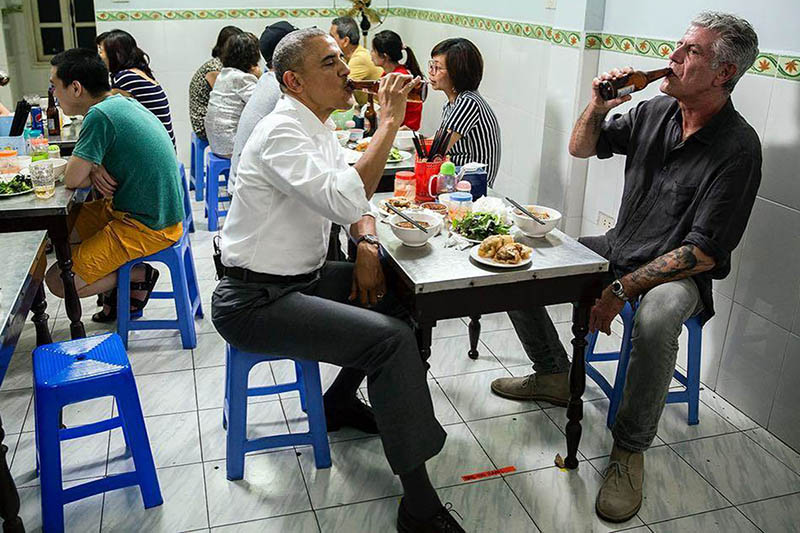
Choosing reputable restaurants and food vendors - Former US President Obama and Anthony Bourdain
Drinking bottled water and avoiding ice
In order to maintain good health during your time in Vietnam, it is advised to refrain from drinking tap water due to potential safety concerns as this guarantees higher quality and safety standards. Additionally, it is important to be cautious when consuming ice, as it may have been produced using tap water of unknown quality. Adhering to these preventive measures can effectively reduce the risk of consuming contaminated water and safeguard your well-being while exploring Vietnam.
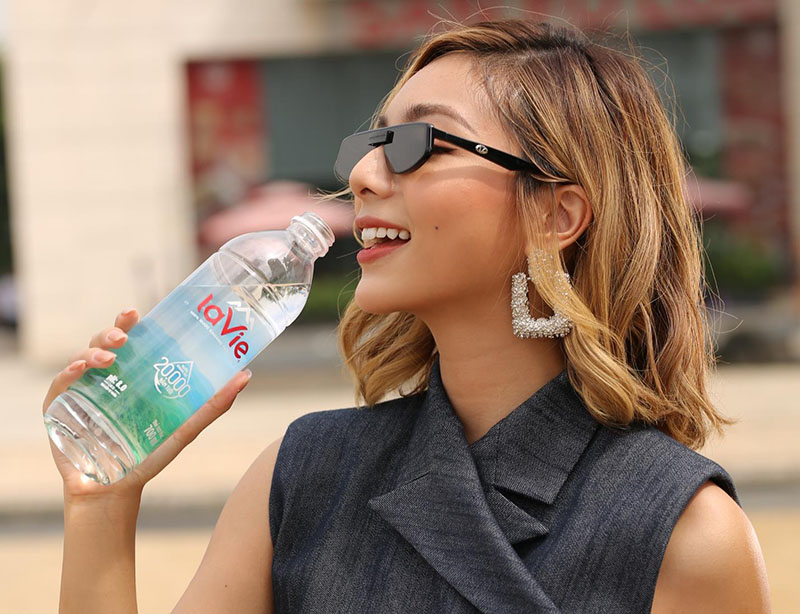
Drinking bottled water
Carrying hand sanitizer and/or wet wipes
When traveling, carrying handmade disposable and wet towels is crucial to maintain personal sanitation. Utilize them before and after meals, as well as when coming into contact with public surfaces such as shops or lounges. By following this practice, you can minimize the risk of infection and safeguard your health throughout your journey.
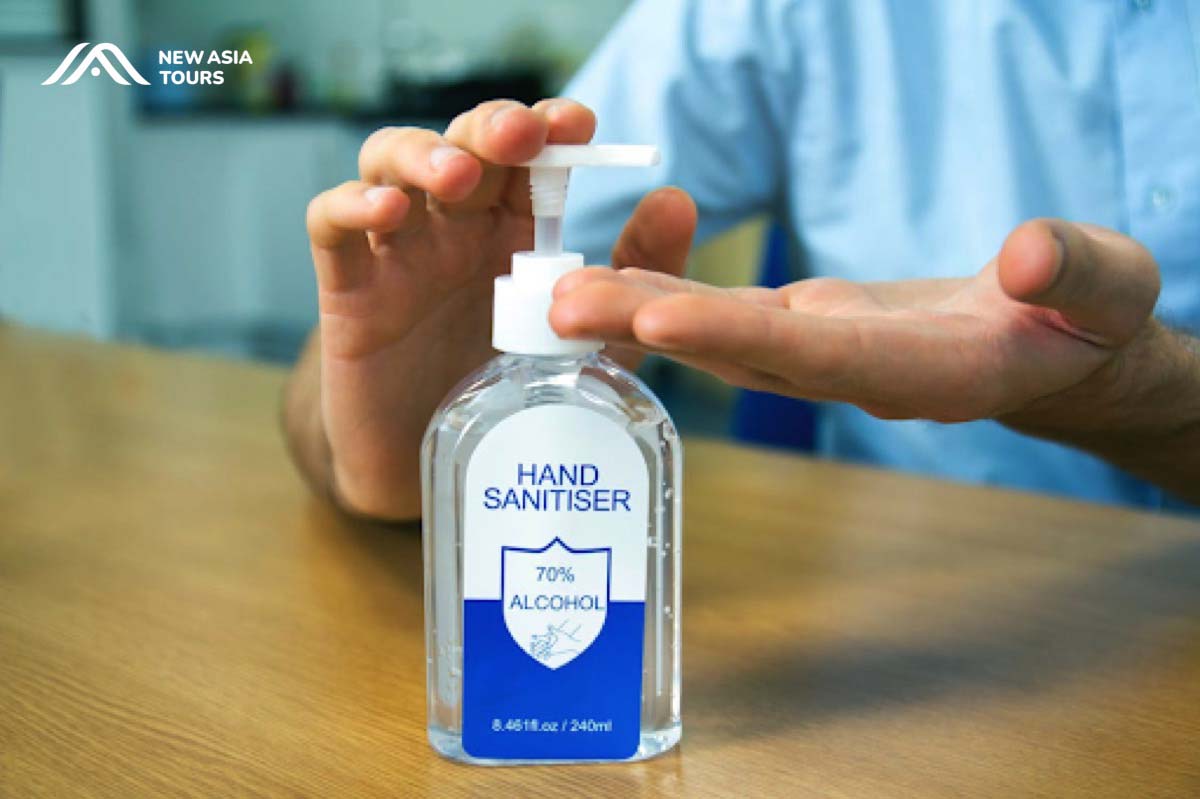
Carrying hand sanitizer
While there are some dishes in Vietnam that should be avoided, there are still many delicious and safe foods for you to enjoy. It's important to be aware of what not to eat in Vietnam to minimize the risk of food-related illnesses. However, these tips are meant to help you protect yourself and maintain hygiene while exploring the culinary delights of Vietnam. Wishing you a wonderful experience during your journey to explore Vietnam!


